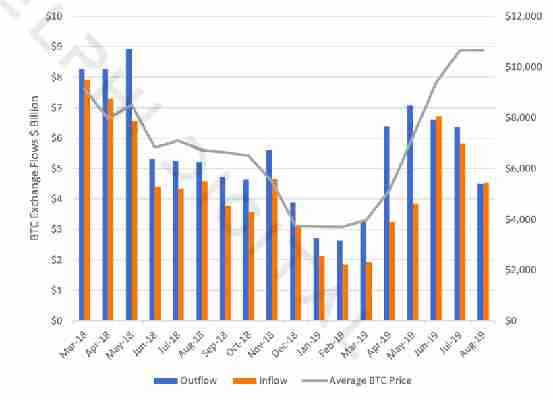Watch out! Wasabi, the popular anonymizing Bitcoin wallet, has been duplicated in an apparent bid to steal your Bitcoin — and the ruse comes complete with an entirely phony website.

Wasabi’s co-founder, nopara73, shared the discovery this morning: “ The first malware that pretends to be Wasabi […]. Notice only the Windows download link points to their own website, the rest is to our GitHub?” he tweeted.
Indeed, the fraudulent site (wasabibitcoinwallet [dot] org) features a download page that links to the latest version of “Wasabi.” It lists four versions for download (macOS, Windows, and two for Linux).
All the links direct users to the real Wasabi wallet (hosted via GitHub) except the Windows link, which automatically downloads a very suspicious si file hosted by the scammers‘ website directly.
Curiously, when the fake wallet was checked with antivirus engines, they were unable to detect any malware inside the dubious installer: “Oh boy, this is going to be messy,” nopara73 added .
Wasabi is an open-source Bitcoin wallet . It natively supports “shuffling” technology, as well as Tor , with goals of providing users with additional privacy when using the world’s most popular cryptocurrency.
Late last year, Wasabi was listed as one of the preferred Bitcoin wallets for cryptocurrency fans in Iran , where it’s increasingly taboo .
For reference, below is a screenshot of the real Wasabi wallet homepage (https://wasabiwallet.io/).
Hard Fork has reached out to nopara73 for more details about the functionality of the fake version, and will update this piece as we learn more.
A method employed by most reputable software projects is arming users with “Pretty Good Privacy” (PGP) signatures, which they can use to verify files they are interacting with are legit. You can read more about how to use PGP signatures here .
Update 11:28 UTC, 21 March: Nopara73 has since contacted Hard Fork with more information. Although conclusive testing on the potential of the fake version hasn’t been conducted, it’s definitely a scam.
“ It may not be a virus yet, they may just be building up their userbase. It may be a virus, but they’re doing a selective scam,” he told Hard Fork. “The Linux and OSX users would vouch for the site, because their software is the original one, so that’d create confusion in forums where they spread the link.”
When asked why he thought the fraudsters chose the Windows version to re-create, nopara73 suggested that it may have simply been too difficult to build modified Wasabi’s for any other platform.
“Now unfortunately for them, they don’t have the signing key I’m using to sign the binary on Windows, so when you’ll try to install their software, Microsoft will complain: ‘Hey, this software has an unknown publisher.’ I wonder if this jeopardizes their efforts,” he added.
Did you know? Hard Fork has its own stage at TNW2019 , our tech conference in Amsterdam. Check it out .
Bitcoin analysts show ‘apparent relationship’ between exchange flow and price
There’s less Bitcoin flowing in and out of cryptocurrency exchanges lately, which indicates calm from those who’ve been keen to profit from its price movements — especially when compared to levels recorded in June and July.

In fact, the amount that traders have sent to major cryptocurrency exchanges is now on par with the total being taken off-exchange, reports Delphi Digital in analysis shared with Hard Fork.
“It’s clear there were significant net outflows during the big rally in the second quarter of 2019, as bullish sentiment really started picking up and individuals were moving Bitcoin off exchanges because they had no intention of selling in the immediate future,” said the firm.


42% of ‘inflowing’ Bitcoin during July and August went to Binance
Delphi Digital also charted the cumulative daily inflow of Bitcoin into prominent cryptocurrency exchanges Binance , BitMEX, Bitfinex , Poloniex, Bitstamp, and Bittrex.
The firm found that more than 42 percent of the total volume sent to these exchanges in August and July ($4.4 billion) went directly to Binance.
“The relationship between Bitcoin price and flows is pretty apparent. Price rallies were typically accompanied by sizable inflows to exchanges as individuals looked to take profit,” said Delphi Digital.
Analysts noted the volume of inflowing Bitcoin can be representative of significant selling pressure. This was the case in early July, when the price of Bitcoin dropped shortly after cryptocurrency exchanges had received lots of deposits.
To compare, less Bitcoin was sent to these exchanges in the beginning of August, which didn’t immediately impact its price.
Considering Bitcoin‘s extended period of price consolidation that has followed its “parabolic run” at the end of June, Delphi Digital’s analysts warn there could be a “significant move” on the horizon.
“A breakout above the $11,000 – $11,200 range for BTC could be the catalyst for another strong move higher. Conversely, a break below ~$9,400 may signal more pain ahead in the near term, though we’ve seen significant buying pressure in this range, evident in Bitcoin’s quick bounce off these levels in mid-to-late July and the end of August,” said the firm.
This article is for educational purposes only. Do not treat this as investment advice. Do your own research.
Google mocks miners, says cryptocurrency ‘isn’t real money’
As if it hadn’t already given cryptocurrency enthusiasts enough reasons to hate it, Google has now taken a dig at the usefulness of cryptocurrencies.

In a recent advertisement for its call screening service, the search engine giant mocked cryptocurrency’s high electricity consumption – and then went on to say that “it is not real money.”
It all starts when one of the characters in the ad receives a message from his electricity provider, informing him his bill is very high.
“Well, cryptocurrency mining takes a lot of energy,” the character argues. Then another character chimes in: “Cryptocurrency… that money isn’t real.”
Check out the ad below:
It’s a surprise that Google would use “cryptocurrencies” as a hook in its own promotional efforts — when it has shown an aversion to allowing any ad that promotes cryptocurrency businesses on its platform.
The company banned all cryptocurrency related ads starting June, but later relaxed the rules to allow select regulated exchange desks to advertise in the US and Japan.
Perhaps Google is trying to send a subtle message by advertising cryptocurrencies in its own content? Or, I am reading too much into this. Nevertheless, I think Google could have been more creative in its mockery.
Cryptocurrency mining has long drawn flake for massive electricity consumptions — although its supporters argue that Bitcoin isn’t as energy-inefficient as some think.
These arguments are way overdone — and frankly, they have just become boring by this point. And as far as the “cryptocurrencies not being real money” jabs go: come on Google, you can do better.
If you’re interested in everything blockchain, chances are you’ll love Hard Fork Decentralized . Our blockchain and cryptocurrency event is coming up soon – join us to hear from experts about the industry’s future. Ticket sales are now open, check it out!











